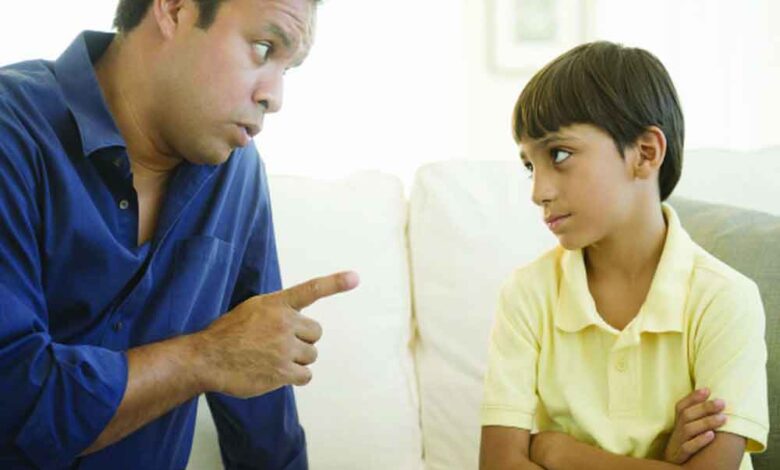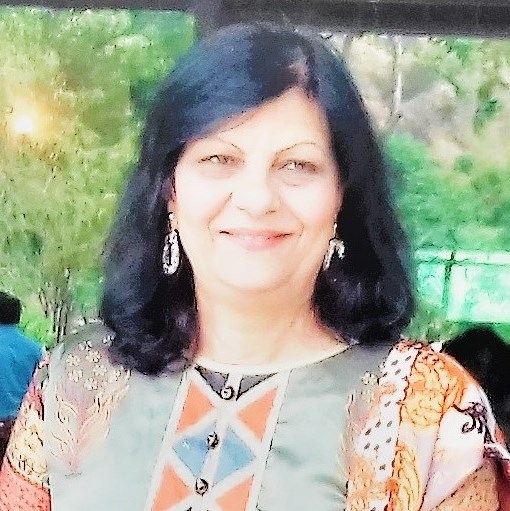GUEST COLUMN : Parenting the Indian way instead of aping others

 Dr Sona Kaushal Gupta
Dr Sona Kaushal Gupta
Comparing Indian and western parenting styles can be quite fascinating as they often reflect broader differences in the cultural values and societal norms. It’s quite obvious that the western parenting culture is different from the Indian culture.
The internet says parents who practice western style parenting tend to be more lenient and allow their children to express themselves freely. Western societies tend to value individualism. It teaches kids to be individualistic and lays more emphasis on personal choice, self-expression, and independence. Parents in Western cultures often promote autonomy by encouraging children to solve their own problems and take responsibility for their actions from a young age.
In contrast, Indian culture parenting lays an emphasis on strict discipline, respect and obedience to authority figures while also focussing on strong family values. Indian society tends to emphasise collectivism, where family and community are paramount. Parents often instill values of interdependence, respect for elders and familial duty. Eastern style of parenting favours family first. They are emotionally connected and supported.
However, at times Indian parents or children try to copy/mimic the western parenting style videos blindly and may end up feeling more confused and guilty.
CASE 1: A mother came to me for a counselling session. She was in tears and said that she was feeling confused, anxious and very guilty after she had seen some western parenting videos which said that children should never be scolded. She now felt she was a bad mother and had been very harsh on her teenage son because she had been very strict with him and scolded him a lot as a child. The western videos firmly said that children should never be scolded and she was desperate.
CASE 2: Another parent also had a similar tale to tell. She said that her 20-year-old daughter was speaking to her very rudely and when she resolutely put her foot down to her rude behaviour she became ruder. The daughter accused her of being an abusive mother who had caused her childhood trauma. When the confused mother asked her what that meant her daughter showed her some western videos which showed children with childhood trauma. The confused and scared mother told me that she loved her daughter dearly but now her daughter disliked her because she had seen some offensive videos and related them to her.
I had to counsel both the mothers and empower them not to feel guilty because their intentions for their children were always good no matter what and they should be proud that they had done their job well! Many more such cases keep coming for therapy for depression and guilt where parents/children/youth/couples are confused about what they should do or say. I find that the root cause of this confusion is their dependance and liking for the western videos they find easily on social media on various topics like parenting, relationships etc to which they relate but which do not match our culture and upbringing. The western models of parenting/relationships are in contrast to our Indian models but are being seen and copied by many Indian parents, children and couples. This is causing turbulence in many relationships and many may feel guilt, low self esteem and sometimes depression. They start to feel they have not been good parents or spouses or do not have suitable partners.The children are also becoming abusive and more rebellious and blame their parents.
It’s a wake up call. We have to learn to get out of this slave mentality where we give more importance to anything ‘foreign’. We should also teach our children to respect their culture. I find many Indian video creators mimic and make videos similar to the western culture causing more harm than good to our society.
Parenting is a natural skill for mothers and they should do it the best they can- the way they were brought up, but definitely take professional help when they face difficulties. Many of our youth are enamoured with the western glamour thanks to social media which has its hazards. It’s important to wean them off.
The metaphor of “cutting the umbilical cord early” is used to signify the importance of fostering independence. The idea is that by encouraging infants to sleep alone, often in separate cribs and rooms, parents are helping them develop self-reliance, autonomy and adaptability and this is being followed by the west.
Traditional eastern beliefs hold that a mother’s touch is essential for a child’s development, both emotionally and physically, promoting a sense of connectedness that lasts a lifetime. The eastern approach is to be close and connected to your child. In many Indian and Asian cultures, co-sleeping is a common practice. Mothers and infants share the same bed, creating a sense of closeness and security. This practice is rooted in deep cultural beliefs and practical benefits. The benefits of this include emotional security as the proximity of a mother provides infants with a sense of safety, reducing stress and anxiety. This can lead to better sleep patterns and emotional well-being. It also results in physical comfort as the warmth and rhythmic breathing of the mother can be soothing, helping the infant regulate their own breathing and body temperature. It also provides ease of breastfeeding –nighttime feedings become more convenient, promoting successful breastfeeding and bonding. The eastern philosophies often emphasise interdependence and community. The family unit is seen as a close-knit entity and co-sleeping reinforces these values from infancy.
The western approach promoted independence with steps like sleeping alone. In many western cultures, infants are encouraged to sleep alone from an early age, often in separate cribs and rooms. This practice is part of a broader philosophy that values autonomy and independence.
However, it is essential to recognise that cultural practices are deeply ingrained and reflect the values and needs of different societies. What works for one family or culture may not work for another, and that’s perfectly okay. It is also important to trust parental instincts. Ultimately, parents should trust their instincts and choose what feels right for their family.
While western cultures may emphasise independence, eastern traditions highlight the importance of close physical and emotional bonds. Understanding and respecting these differences can help parents make informed decisions that best support their child’s development. In the end, the goal is to nurture a happy, healthy and well-adjusted child, and there are many paths to achieving this
It is best to follow your heart and not copy or mimic the behaviour of others and also never be in guilt by comparing or blaming yourself. It’s best to be authentic and true to yourself and be happy.
(The author is a neuropsychologist, founder of a crisis helpline and designated CBSE counsellor. Views expressed are personal)






